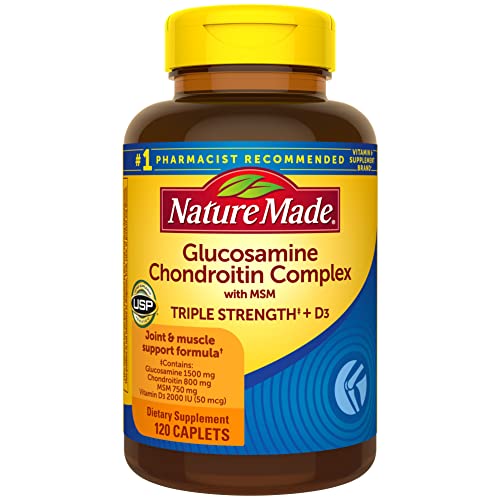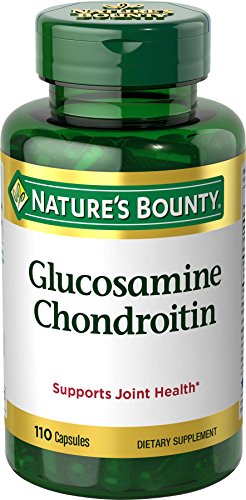Chondroitin for Knee OA Pain Relief: Key Findings
Quick Summary: This 2018 review of multiple studies looked at whether glucosamine and chondroitin supplements help ease knee pain and stiffness from osteoarthritis (OA). The main finding? Taking both supplements together reduced pain and improved daily function better than a placebo, but the benefits were small. Chondroitin alone offered minor pain relief, while glucosamine by itself didn't help much.
What The Research Found
Researchers combined data from several high-quality studies to see if these supplements truly work for knee OA symptoms. They focused on pain, stiffness, and how well people could move around. Here's what stood out:
- Combo Power: Glucosamine plus chondroitin cut pain scores by 2.3 points on a standard scale (like a survey that rates OA symptoms from 0 to 100). It also boosted function by 3.8 points, meaning people felt a bit more mobile. Pain on a simple visual scale dropped by 1.5 mm.
- Chondroitin Solo: On its own, chondroitin slightly lowered pain by 1.5 mm on the visual scale, a small but real improvement.
- Glucosamine Alone: No clear benefits—it didn't reduce pain or improve function noticeably.
- Overall, the effects were modest, like a gentle nudge rather than a big fix. Results varied between studies, which made things less consistent.
These changes might not sound huge, but even small wins can make daily life easier for someone with knee OA.
Study Details
- Who was studied: Adults with knee osteoarthritis who had symptoms like pain and trouble moving. The review pulled from various trials, so it included a mix of people, but details like exact ages or how severe their OA was weren't specified.
- How long: The included studies lasted from weeks to months, as this was a roundup of different trials—not one single long-term test.
- What they took: Oral supplements of glucosamine (often around 1,500 mg per day) and/or chondroitin (usually 800–1,200 mg per day). Everyone got these in pill form, compared to fake placebo pills.
The team searched big databases like Medline and Google Scholar for reliable, placebo-controlled trials and crunched the numbers using stats to spot patterns.
What This Means For You
If you have knee OA and deal with nagging pain or stiffness, this research suggests trying a combo of glucosamine and chondroitin might give you mild relief—think less ache during walks or stairs. Chondroitin alone could help a tiny bit with pain, but skip glucosamine solo. Start with common doses, but talk to your doctor first, especially if you take other meds or have health issues. It's not a cure, but it could complement exercise, weight management, or meds like ibuprofen. Track how you feel after a month or two to see if it's worth it for you.
Study Limitations
No research is perfect, and this one has some caveats to keep in mind:
- Varied Results: Studies differed in setup and people involved, leading to inconsistent findings—some showed bigger benefits than others.
- Small Effects: The improvements were minor, so they might not feel life-changing for everyone.
- Possible Bias: Some trials were funded by supplement companies, which could skew results positively. Plus, smaller studies with no effects might not have been published.
- Not One-Size-Fits-All: Doses and how long people took the supplements varied, and we don't know much about the participants' ages, genders, or OA stages.
- No Long-Term View: It focused on short-term symptoms, not if it slows OA progression or helps over years.
For the best advice, pair this with your doctor's input and consider lifestyle changes for stronger knee health.
Technical Analysis Details
Key Findings
The meta-analysis concluded that combined glucosamine and chondroitin sulfate supplementation significantly reduced knee osteoarthritis (OA) symptoms compared to placebo. Specifically, the combination improved WOMAC pain scores by 2.3 points (95% CI: -3.8 to -0.8) and WOMAC function scores by 3.8 points (95% CI: -6.1 to -1.5). Chondroitin alone showed modest benefits for VAS pain reduction (-1.5 mm, 95% CI: -2.9 to -0.1), while glucosamine alone did not demonstrate significant efficacy. Heterogeneity was moderate to high across studies (I² > 50%), suggesting variability in outcomes based on study design or population.
Study Design
This 2018 meta-analysis reviewed randomized placebo-controlled trials (RCTs) evaluating oral glucosamine and/or chondroitin sulfate for knee OA. Researchers searched Medline, Scopus, Web of Science, and Google Scholar databases. The analysis included studies using the WOMAC index (assessing pain, stiffness, function) and/or VAS (pain intensity). Statistical methods included a random-effects model and generic inverse-variance weighting. Sample sizes and trial durations were not explicitly stated in the provided summary, but meta-analyses typically aggregate data from multiple trials spanning weeks to months.
Dosage & Administration
The study evaluated orally administered glucosamine and chondroitin sulfate. Specific doses were not detailed in the provided summary, but common formulations in OA trials include 1,500 mg/day of glucosamine sulfate and 800–1,200 mg/day of chondroitin sulfate. Administration duration varied across included trials, as typical in meta-analyses combining studies with differing protocols.
Results & Efficacy
- Combination therapy:
- WOMAC pain: -2.3 points (95% CI: -3.8 to -0.8; p < 0.05).
- WOMAC function: -3.8 points (95% CI: -6.1 to -1.5; p < 0.05).
- VAS pain: -1.5 mm (95% CI: -2.9 to -0.1; p = 0.04).
- Chondroitin alone:
- VAS pain reduction: -1.5 mm (95% CI: -2.9 to -0.1; p = 0.04).
- Glucosamine alone: No significant effects on WOMAC or VAS scores.
Effect sizes were small to moderate, and statistical significance was marginal in some cases (e.g., p = 0.04).
Limitations
- Heterogeneity: High variability in study designs (I² > 50%) may limit generalizability.
- Publication bias: Smaller studies with null results might be underrepresented.
- Dose variability: Lack of standardized dosing across trials complicates interpretation.
- Funding sources: Some included trials were industry-sponsored, potentially influencing outcomes.
- Demographics: No details provided on age, sex, or OA severity of participants, which could affect efficacy estimates.
Clinical Relevance
For individuals with knee OA, this meta-analysis suggests that combined glucosamine and chondroitin may provide minor symptom relief, particularly for pain and physical function. However, the modest effect sizes and heterogeneity indicate that benefits may vary by individual. Chondroitin alone might offer limited pain reduction, while glucosamine alone appears ineffective. Users should weigh these findings against potential placebo effects and consult healthcare providers, as results do not support robust clinical recommendations. Future research should standardize dosing and explore subgroups (e.g., early vs. advanced OA).
Note: This analysis is based on the provided summary; full study details (e.g., sample size, trial durations) may refine conclusions.
Original Study Reference
Effect of glucosamine and chondroitin sulfate in symptomatic knee osteoarthritis: a systematic review and meta-analysis of randomized placebo-controlled trials.
Source: PubMed
Published: 2018
📄 Read Full Study (PMID: 29947998)




